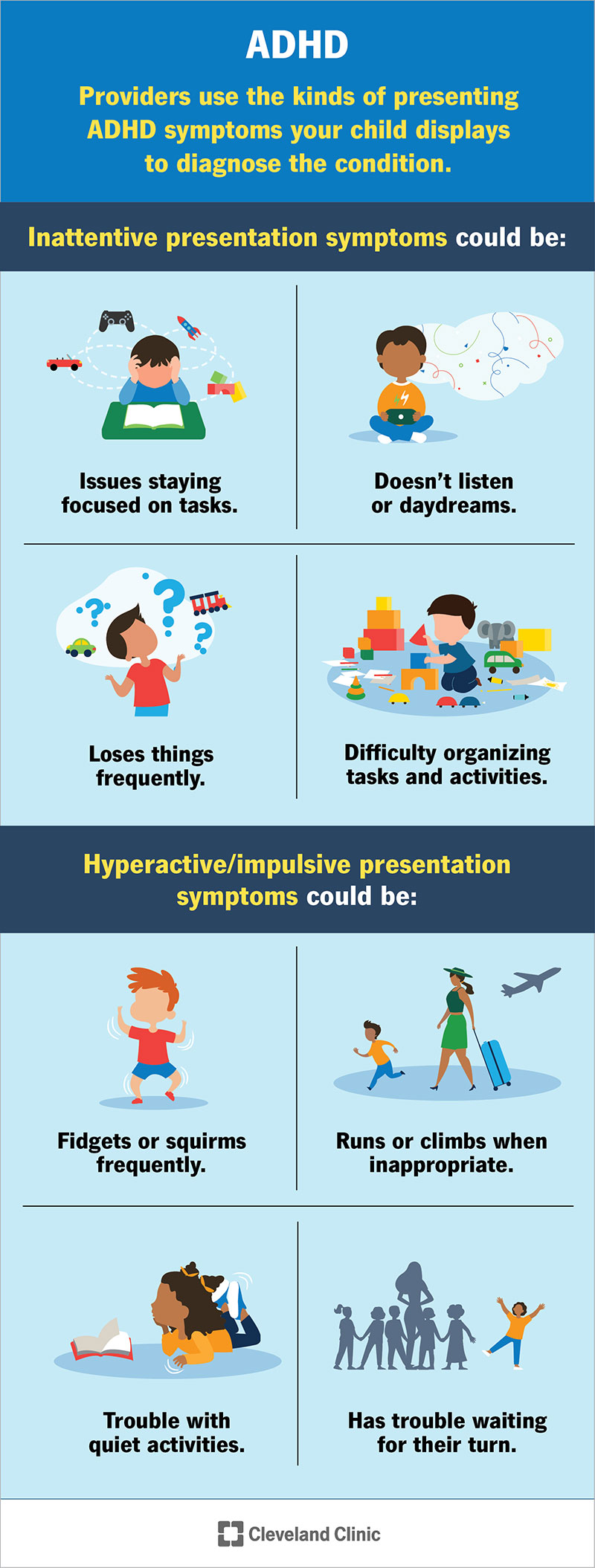Discovering Reliable ADHD Therapy Options for All Ages
The complexities of Attention deficit disorder (ADHD) present special difficulties across different age groups, requiring a thorough expedition of reliable treatment choices. A combination of behavior modifications, pharmacological treatments, and lifestyle adjustments has revealed guarantee in dealing with the varied requirements of individuals with ADHD. The efficacy of these strategies can differ significantly based on individual scenarios, raising crucial questions regarding customized methods. As we analyze the spectrum of therapy modalities readily available, it becomes important to consider not just their immediate impacts but likewise their lasting implications for individuals and households.
Recognizing ADHD and Its Influence
Attention-Deficit/Hyperactivity Problem (ADHD) is a neurodevelopmental problem characterized by consistent patterns of inattention, hyperactivity, and impulsivity that can substantially impact different aspects of an individual's life. It generally manifests in youth, although signs can linger into adulthood. The core signs of ADHD can disrupt academic performance, impede social interactions, and make complex work undertakings.
People with ADHD typically battle with keeping concentrate on jobs, arranging tasks, and following up on directions, which can cause scholastic underachievement (Depression Treatment). In social contexts, impulsivity might lead to problems in creating and maintaining connections, as individuals may disrupt conversations or make hasty choices without taking into consideration consequences
Furthermore, ADHD can co-occur with other mental health conditions, such as anxiousness and depression, better making complex diagnosis and treatment. The irregularity in sign presentation implies that ADHD can impact individuals in a different way, demanding a customized approach to administration. Comprehending ADHD's complex impact is vital for developing effective strategies that sustain people in navigating everyday challenges and attaining their capacity. Comprehensive awareness of ADHD's nature and implications prepares for checking out ideal therapy alternatives tailored to each individual's needs.
Behavioral Therapies for ADHD
Various behavior modifications have been established to effectively attend to the obstacles related to ADHD, concentrating on modifying particular behaviors and promoting essential skills. Amongst the most identified methods are cognitive-behavioral treatment (CBT), parent training, and social skills training.
CBT assists individuals identify and alter adverse thought patterns and behaviors, advertising an extra favorable overview and improved self-regulation. This therapy typically includes functional methods for handling impulsivity and enhancing company. Moms and dad training programs encourage caregivers by furnishing them with strategies to strengthen favorable behaviors and set regular boundaries, which can be specifically useful for children with ADHD.
Social abilities training is another vital part, mentor people with ADHD how to engage properly with peers - Depression Treatment. This method often involves role-playing and responses to enhance interaction, teamwork, and conflict resolution abilities
Incorporating these behavior therapies right into an extensive treatment strategy can considerably boost working and lifestyle for people with ADHD. Ultimately, the performance of these anchor therapies depends upon customized methods that think about the one-of-a-kind requirements of everyone, thus promoting strength and flexibility in life.
Medicine Options Available
For lots of individuals with ADHD, medicine can play a significant duty in managing symptoms and improving total performance. Both primary classifications of medicines suggested for ADHD are stimulants and non-stimulants.
Stimulants, such as methylphenidate and amphetamine-based drugs, are one of the most generally utilized treatments. These medications work by boosting the degrees of neurotransmitters, particularly dopamine and norepinephrine, in the brain, which helps enhance interest and reduce impulsivity and attention deficit disorder. They typically yield quick outcomes, making them a preferred alternative for numerous clients.

It is essential for health care companies to carry out a complete evaluation to identify the most appropriate medicine based upon individual requirements, case history, and potential negative effects. Routine follow-up and surveillance are likewise important to make certain the performance of the picked treatment and to make any essential modifications.
Lifestyle Adjustments to Think About
Taking care of ADHD effectively prolongs beyond medicine, as way of living adjustments can considerably improve general well-being and symptom control. Including organized routines is crucial; regular timetables assist people with ADHD handle their time successfully and lower sensations of bewilder.
Normal physical activity is an additional essential severe depression symptoms component. Workout not only assists to improve concentration yet additionally enhances mood and lowers stress and anxiety degrees. Tasks such as yoga or team sports can be specifically valuable, advertising both physical conditioning and social interaction.
Nourishment likewise plays a crucial duty. Depression Treatment. A well balanced diet abundant in omega-3 fats, whole grains, and lean healthy proteins can add to boosted emphasis and cognitive function. Limiting sugar and processed foods is recommended, as these can worsen attention deficit disorder and impulsivity
Rest hygiene is crucial for managing ADHD signs and symptoms. Establishing a regular rest timetable and producing a relaxing setting can boost rest high quality, leading to better focus and psychological policy.
Alternative and Holistic Techniques
Different and all natural strategies to ADHD treatment use a varied array of alternatives that match typical methods. These methods typically concentrate on lifestyle adjustments, dietary interventions, and healing techniques that aim to enhance total well-being while addressing ADHD signs and symptoms.

Mindfulness and behavior modifications are additionally getting traction as holistic interventions. Practices such as yoga, meditation, and cognitive-behavioral therapy can grow self-regulation and enhance interest. These techniques support emotional resilience, which is specifically useful for people with ADHD.
Natural supplements, such as ginkgo biloba and ginseng, are often checked out; nevertheless, it is crucial to get in touch with healthcare experts before integrating these right into therapy plans. While choice and all natural strategies can provide valuable assistance, they need to ideally be used along with evidence-based treatments to accomplish optimum outcomes for handling ADHD throughout any ages.
Verdict
In summary, effective ADHD therapy requires a thorough method that consists of behavior therapies, medication, way of life adjustments, and holistic methods. This diverse technique emphasizes published here the relevance of individualized care in resolving the diverse requirements of individuals with ADHD across all age teams.